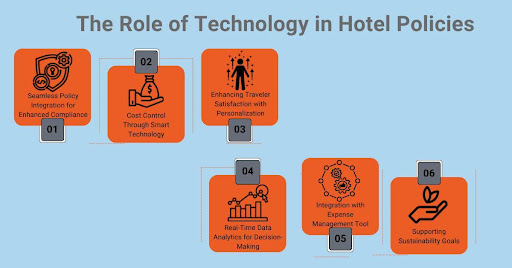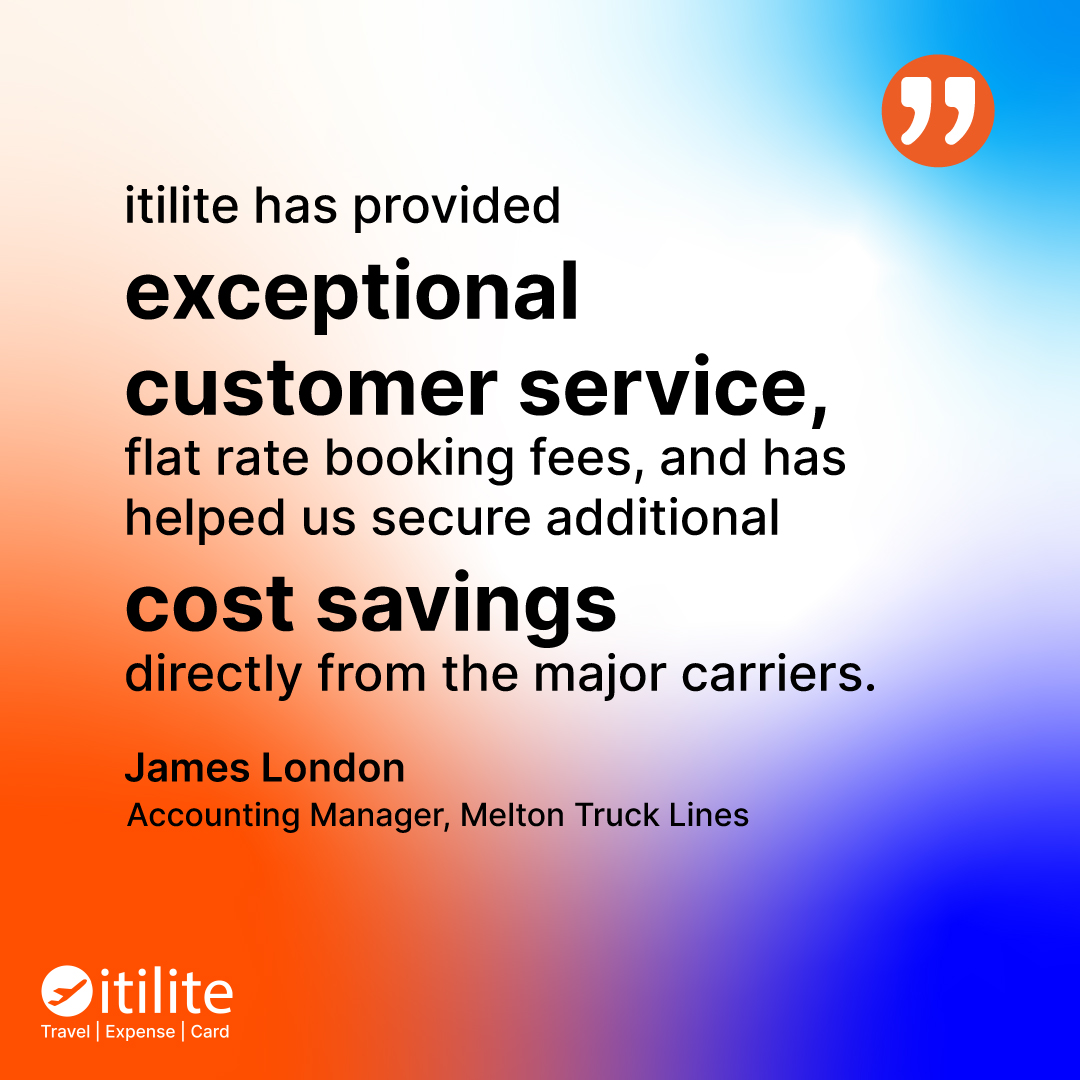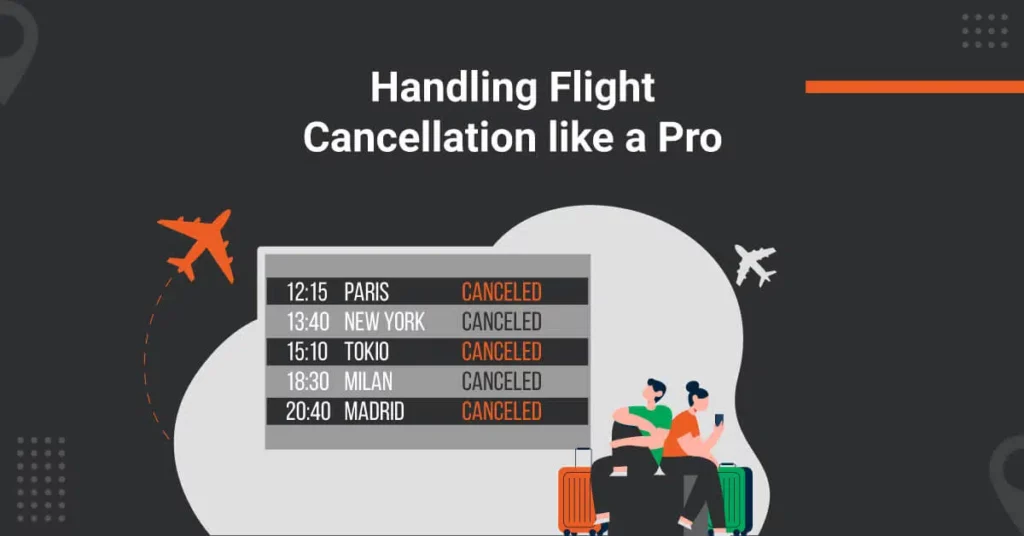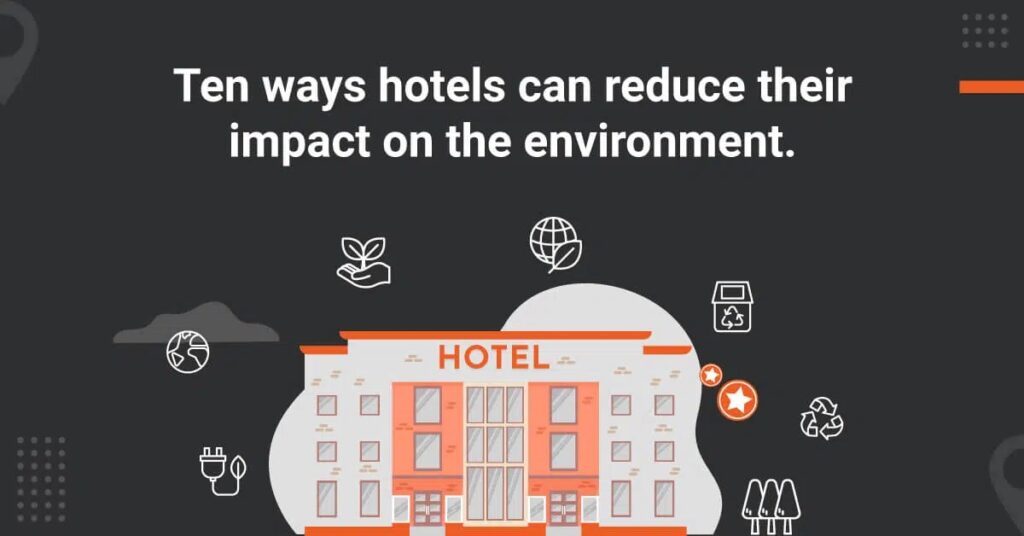
Business travel has become an integral part of corporate operations. Companies worldwide are investing heavily in accommodations for their traveling employees. Over the years, how businesses approach hotel bookings has transformed, moving from individual arrangements to centralized policies focusing on efficiency, compliance, and cost management.
According to the Hotel Tech Report, 34% of business travel is spent on accommodations and lodging, and hotels continue to remain the number one choice for business travelers.
This shift is driven by the growing complexity of managing travel logistics, followed by the rising need for transparency and control over expenses. However, these challenges also present opportunities. By setting up a structured hotel policy, companies can streamline bookings, reduce costs, and enhance employee satisfaction.
In this article, we’ll discuss why a hotel policy is essential, how technology plays a pivotal role in enforcing policies, and the step-by-step process of setting up an effective hotel policy for business travel.
What is a Hotel Policy?
A hotel policy in business travel is a structured framework that guides employees on booking and staying at hotels during corporate trips. It encompasses various aspects, such as budget limits, preferred hotel chains, approved booking platforms, and expense reimbursement guidelines.
The primary objectives of a hotel policy are to control travel costs, ensure compliance with company standards, prioritize traveler safety, and enhance employee satisfaction.
Historically, hotel policies emerged in the late 20th century as a response to the increasing complexity and costs of corporate travel. Early policies focused solely on cost control through negotiated rates with hotels. However, advancements in travel technology have transformed hotel policies into dynamic tools integrated with corporate travel management systems.
Modern hotel policies address key challenges such as unauthorized bookings, excessive expenses, and employee dissatisfaction. They leverage technology to enforce compliance in real time, provide data-driven insights, and ensure bookings align with corporate agreements.
A well-structured hotel policy also includes health, safety, and sustainability considerations. For example, policies might mandate vetting hotels for safety standards or encourage booking eco-friendly accommodations.
In today’s competitive landscape, a comprehensive hotel policy balances organizational goals with traveler comfort, ensuring a seamless experience while optimizing costs and compliance. This integration of strategy, technology, and traveler satisfaction has made hotel policies indispensable to corporate travel management.
Why Should You Create a Robust Hotel Policy?
A well-defined hotel policy is a cornerstone of effective corporate travel management. It ensures clarity, consistency, and cost-efficiency in business travel, benefiting employees and organizations.
- Firstly, a robust hotel policy sets clear guidelines regarding booking procedures, preferred hotel chains, room categories, and reimbursement processes. This minimizes confusion and ensures that employees make bookings within company-approved parameters. It also simplifies the approval process, reducing administrative overheads.
- Cost control is another critical benefit. A well-crafted policy can leverage corporate hotel rates and negotiated discounts, helping companies save significantly on accommodation expenses. It also prevents overspending by setting budget limits and enforcing compliance through centralized booking platforms.
- Employee safety and comfort are equally important. A strong policy prioritizes accommodations in safe, convenient locations, often near work sites or transportation hubs. It can also address specific needs like accessibility or amenities, ensuring employees feel supported during their travels.
- Finally, a robust hotel policy enhances compliance and reporting. Centralized booking tools integrated with the policy can generate detailed data on travel expenditures, helping organizations monitor spending patterns, identify inefficiencies, and improve future planning.
In summary, creating a robust hotel policy is not just a logistical necessity but a strategic initiative. It aligns business goals with employee satisfaction while optimizing resources and fostering a culture of accountability in corporate travel.
The Role of Technology in Hotel Policies
In the dynamic world of corporate travel, technology is redefining the way organizations integrate hotel policies with booking platforms. This integration ensures compliance and cost control and enhances traveler satisfaction—critical components of an effective corporate travel strategy. With data-driven insights, real-time policy enforcement, and automation, technology simplifies complex processes and yield measurable benefits.
1. Seamless Policy Integration for Enhanced Compliance
Corporate travel policies outline rules governing hotel bookings, such as preferred vendors, spending limits, and reimbursement procedures. The technology ensures these policies are embedded within booking platforms, streamlining compliance.
- Policy Automation: Modern booking platforms incorporate AI-driven engines to automatically enforce policies during the booking process. According to a Deloitte survey, 68% of businesses using automated tools reported improved compliance rates.
- Real-Time Policy Updates: Cloud-based systems allow companies to update policies instantly across platforms, ensuring that travelers always follow the latest guidelines.
- Behavior Tracking: Machine learning identifies booking behaviors that deviate from policies, enabling proactive adjustments. Studies reveal that companies using AI for monitoring saw a decrease in policy violations.
- Role of Alerts: Alerts play a pivotal role by notifying employees in real time when their booking choices exceed policy limits. Thus, helping prevent non-compliance before it occurs.
2. Cost Control Through Smart Technology
Hotel stays often represent a significant portion of corporate travel expenses. By leveraging technology, companies can exercise greater control over these costs while maintaining traveler convenience.
- Dynamic Pricing Insights: Tools integrated with booking platforms analyze historical data and market trends to recommend the best times and locations for cost-effective bookings. According to a report by Gartner, businesses utilizing dynamic pricing reported a 20-25% reduction in accommodation expenses.
- Pre-Trip Approvals: Automation facilitates pre-trip approvals by flagging bookings that exceed policy limits. This results in faster approval processes compared to manual methods.
3. Enhancing Traveler Satisfaction with Personalization
While cost and compliance are critical, traveler satisfaction is vital in ensuring policy adherence. Technology bridges the gap between corporate policies and individual preferences.
- Customizable Preferences: AI-powered Booking platforms allow travelers to input preferences, such as room type or proximity to specific locations while adhering to policy guidelines. According to an SAP Concur study, this feature boosts compliance rates by 18%.
- Mobile Accessibility: 52% of business travelers prefer booking through mobile apps, as reported by Phocuswire. The technology ensures that corporate policies remain intact across mobile platforms, providing a seamless booking experience.
- Feedback Integration: Advanced systems gather traveler feedback post-trip to refine policy guidelines and hotel selection processes. Companies that utilize feedback-based systems saw an increase in employee satisfaction with travel arrangements.
- Policy Approvals by Department and Designation: Introducing policy approvals at the department and designation level ensures that booking decisions align with the unique budgetary and operational needs of each team. This contributes to a seamless booking experience while being policy compliant.
4. Real-Time Data Analytics for Decision-Making
Data analytics is a cornerstone of modern corporate travel management. By collecting and analyzing hotel booking data, companies can gain insights into spending patterns and optimize their policies.
- Spending Trends: Platforms like itilite provide dashboards that showcase trends in accommodation costs, policy compliance, and traveler preferences. Businesses leveraging such tools reported a improvement in budget forecasting accuracy.
- Vendor Performance Analysis: Advanced analytics evaluate the performance of preferred hotels in terms of cost, amenities, and traveler satisfaction, enabling better negotiations.
- Risk Mitigation: Real-time data also flags non-compliant bookings or excessive spending, helping companies mitigate financial risks promptly.
5. Integration with Expense Management Tools
A key feature of modern technology is integrating booking platforms with expense management systems. This integration simplifies reimbursement, reduces errors, and ensures accurate reporting.
- Automated Reconciliation: Booking platform payment data syncs directly with expense management software. This reduces time spent on manual reconciliation by 95%
- Centralized Billing: Corporate cards and virtual payments eliminate the need for out-of-pocket expenses, improving traveler satisfaction and compliance.
- Policy Violation Reports: Integrated systems generate reports on policy violations, enabling companies to address issues swiftly.
6. Supporting Sustainability Goals
Sustainability is becoming a priority for many organizations, and technology supports this objective through better tracking and decision-making.
- Green Hotel Listings: Many platforms now feature eco-friendly hotels and integrate sustainability metrics into booking processes. Companies using green policies saw a reduction in carbon footprint for travel.
- Carbon Offsetting Options: Some systems allow travelers to contribute to offsetting programs directly through booking platforms.

Steps to Setting Up a Robust Hotel Policy for Business Travel
Several key steps must be carefully considered to create a comprehensive and effective hotel policy. Each step ensures the policy is robust and adaptable, ensuring it meets organizational goals while balancing cost control and traveler satisfaction.
1. Defining Clear Objectives
The first step in crafting a hotel policy is to define its purpose clearly. This means understanding why the policy is necessary and aligning it with your organization’s goals. For instance, the objective could be to reduce hotel expenditure, improve the booking experience, or enhance traveler safety.
It is important to establish clear and measurable objectives, such as reducing the average hotel cost per employee by 15% over the next fiscal year. These objectives will guide the entire policy structure, ensuring that each decision made aligns with broader corporate goals. Defining the scope also helps stakeholders understand what the policy covers and how it aligns with the overall travel policy of the organization.
2. Understanding Company Travel Needs
Before drafting the policy, it’s essential to analyze the company’s travel data and understand the needs of the employees affected by the policy. This means looking at historical booking patterns-where employees travel most frequently, the type of accommodation they typically choose, and how much they generally spend on hotels.
Collecting this data helps to make informed decisions about setting appropriate budget limits and vendor partnerships. Equally important is gathering direct employee feedback through surveys or focus groups, as their insights can reveal specific preferences, such as proximity to client sites or preferred hotel chains. Understanding both the quantitative data and qualitative feedback ensures the policy is tailored to real-world needs while supporting cost management.
3. Setting Budget Guidelines
A crucial part of any hotel policy is establishing clear budget guidelines. These guidelines typically define maximum allowable spend based on city tiers or regions, as hotel prices can vary widely depending on the location and time of year. For example, a company may set a maximum rate for hotel bookings in high-cost cities like New York or London but offer more flexible allowances for cities with lower accommodation costs.
Incorporating expense allocation is also essential, where companies define what expenses will be reimbursed, such as room rates, meals, and incidental charges, and set clear limits. By setting strict per diem or nightly rates, the policy can help control costs while also giving employees the flexibility to choose accommodations that fit within the allocated budget. Benchmarking these rates against recognized standards or other industry norms helps maintain competitive pricing.
4. Integrating Preferred Vendors
Hotel policies are more effective when integrated with preferred vendors or hotel chains. By negotiating corporate discounts with specific hotels, companies can secure better rates and additional perks, such as complimentary breakfast or loyalty rewards, which ultimately reduce the overall cost of travel. Working with selected vendors also streamlines the booking process by providing consistency and simplifying the management of accommodations.
Preferred vendors can be identified based on their location, quality, reliability, and ability to meet safety or other business-specific requirements. Companies that leverage preferred vendor integrations save on hotel expenses annually. These savings result from bulk deals and negotiated terms, such as reduced rates and additional value-added services.
5. Incorporating Technology for Efficiency
In today’s digital age, technology plays a pivotal role in the efficiency of hotel policies. Implementing a travel management platform or booking system helps streamline the process of making hotel reservations. These systems ensure that bookings are made within policy, automatically flagging any out-of-policy expenses and preventing employees from booking accommodations outside of the preferred vendors or approved rates.
Moreover, using technology allows for real-time reporting and tracking of hotel bookings, making it easier to monitor compliance and ensure that budget limits are adhered to. Platforms such as itilite can integrate seamlessly with existing expense management systems to simplify both the booking and reimbursement processes, providing data-driven insights that help optimize future travel policies.
6. Defining Clear Booking Procedures
Clear and straightforward booking procedures are a must to ensure that employees are not confused about how to make their reservations. The policy should dictate which channels are approved for booking accommodations, whether it be through a corporate booking tool, a travel management company, or direct bookings with hotels. These procedures should be well communicated to employees to minimize the risk of unauthorized bookings or misuse of travel funds.
Additionally, booking policies should promote early reservations to secure the best rates, ideally giving travelers guidelines on how far in advance bookings should be made. For example, requiring bookings to be made at least two weeks in advance can help secure better rates and availability. On the other hand, the policy should also define procedures for urgent or last-minute bookings, ensuring that travelers still have access to appropriate accommodations even in unexpected situations.
7. Establishing Safety and Security Standards
A robust hotel policy should always include provisions related to traveler safety and security. Hotels should meet certain minimum standards in terms of safety, such as 24/7 security presence, well-lit parking areas, and clear emergency evacuation procedures. Furthermore, companies can include stipulations about the safety of the hotel’s neighborhood or its proximity to business venues.
This helps mitigate risks associated with employees traveling to unfamiliar locations. The policy should also specify what happens in the event of an emergency—such as natural disasters, political unrest, or health crises. For example, if an employee’s travel plans are disrupted due to an unforeseen crisis, the company should have protocols in place for arranging alternative accommodations and ensuring the employee’s safety, perhaps through a partnership with travel risk management companies.
8. Outlining Reimbursement Policies
A hotel policy should clearly state which expenses are reimbursable and what documentation is required to process reimbursement. Commonly, hotel-related costs such as room rates, Wi-Fi charges, and meals within the set daily limits are reimbursed. However, personal expenses like room service, minibar items, or entertainment should generally not be reimbursed.
The policy should provide detailed instructions on what receipts are necessary, whether they be physical or electronic, and outline how long employees have to submit them after their travel. For example, a company might require that expense reports be submitted within 30 days of the trip. Defining these rules reduces confusion and ensures that reimbursement is efficient and transparent.
9. Encouraging Compliance
Employees must adhere to the hotel policy to maintain control over travel expenses. Ensuring compliance can be achieved through education and ongoing training. When employees are properly educated about the policy and its importance, they are more likely to comply. Holding periodic workshops, webinars, or creating an easily accessible policy manual can help ensure everyone understands the guidelines.
It is also useful to incorporate automated compliance checks into booking systems, which will prevent employees from making out-of-policy bookings in real-time. For instance, employees could receive immediate alerts if they attempt to book a hotel that doesn’t meet the company’s preferred vendor or budget criteria. Moreover, non-compliance can be dealt with by enforcing penalties, such as reducing reimbursement rates or flagging repeat offenders, which ensures that travelers stay accountable.
10. Monitoring, Reviewing, and Updating the Policy
Finally, the hotel policy should not be static; it must evolve over time to reflect changes in company needs, market conditions, and traveler expectations. Regular reviews—quarterly or annually—should be conducted to assess the policy’s effectiveness. Companies should evaluate how well the policy is helping to control costs, meet employee satisfaction goals, and maintain compliance.
Gathering feedback from travelers about their experiences can provide valuable insights for improving the policy. Additionally, tracking key performance indicators (KPIs), such as the percentage of out-of-policy bookings or savings achieved through preferred vendor agreements, helps ensure that the policy is aligned with the company’s objectives.
As the landscape of business travel continues to change, incorporating flexibility into the policy allows companies to adapt to new trends, such as sustainability in hotel choices or more flexible booking options.
Metrics to Track and Implement a Successful Hotel Policy
Improving a hotel policy requires strategy, regular updates, and feedback-driven adjustments to ensure it remains aligned with the company’s goals and industry best practices. Here’s how organizations can enhance their hotel policies:
1. Collect Employee Feedback Regularly
One of the most effective ways to improve a hotel policy is by incorporating regular feedback from employees. Understanding their preferences and pain points can reveal areas where the policy might be too rigid or not provide sufficient benefits. For instance, employees may express dissatisfaction with the limited hotel options or inadequate safety standards, prompting policy adjustments. Research shows that companies that use feedback-based systems saw a 14% increase in employee satisfaction with travel arrangements, involving employees in the process builds trust and can foster compliance.
2. Leverage Technology to Streamline Processes
Using advanced travel management platforms like itilite can significantly improve the efficiency of hotel policies. These platforms can automate compliance checks, flagging out-of-policy bookings and offering real-time insights into expenses. Technology also enables better integration with corporate travel policies, ensuring that employees always book within approved guidelines. Additionally, technology can help track key performance indicators (KPIs), such as hotel spend per employee, enabling more data-driven decisions to improve policy effectiveness.
3. Set Flexible and Dynamic Budget Guidelines
Hotel policies should not be static but instead flexible to account for fluctuations in hotel prices across different cities, seasons, or market conditions. Setting flexible budget ranges based on city categories or specific travel seasons (peak vs. off-peak) helps ensure policies are realistic and do not hinder business travel. For example, setting a $250/night cap for hotels in New York City during peak times is more practical than a fixed amount. This flexibility helps manage costs without limiting travel options, ensuring employees can still book appropriate accommodations.
4. Enhance Compliance with Clear Guidelines
One common issue with hotel policies is the lack of clarity around what is considered compliant. It’s important to define what constitutes ‘acceptable’ hotels (based on safety standards, proximity to business venues, etc.), which expenses are reimbursable, and how bookings should be made (through preferred vendors or booking tools). Providing employees with detailed examples of compliant vs. non-compliant bookings can minimize misunderstandings. Additionally, incorporating clear guidelines on how and when to submit receipts, and outlining consequences for non-compliance, ensures better adherence to the policy.
5. Negotiate Better Rates with Preferred Vendors
Negotiating corporate rates with preferred hotel chains and booking platforms can help organizations secure better deals and ensure employees have access to cost-effective, reliable accommodations. These not only reduce costs but also streamline the booking process and offer employees added perks, such as loyalty points, priority check-ins, or free breakfast, enhancing the overall travel experience.
6. Incorporate Sustainability Practices
As sustainability becomes a growing concern, organizations should incorporate eco-friendly practices into their hotel policy. This can involve prioritizing hotels with green certifications or sustainable practices, such as energy-efficient facilities, waste reduction efforts, or responsible sourcing of food and amenities. Employees are becoming increasingly aware of the environmental impact of their travel, and by promoting sustainable options, companies can improve corporate responsibility and attract eco-conscious travelers.
7. Regularly Review and Update the Policy
Hotel policies should be reviewed regularly—at least annually or biannually—to assess their effectiveness and relevance. During these reviews, companies should evaluate how the policy is meeting business goals, controlling costs, and aligning with employee needs. New trends, such as the rise of ‘bleisure’ travel, could prompt changes to policies regarding extended stays or accommodation choices. Adjusting the policy based on these evaluations ensures that it stays relevant in a dynamic business environment.
8. Train Employees and Travel Managers
Even the best hotel policy is ineffective if employees are unaware of it or do not understand how to use it. Ongoing training for employees and travel managers ensures that everyone is well-versed in the policy’s guidelines and the tools available for booking accommodations. Webinars, interactive training sessions, or detailed guides can improve awareness and compliance. Additionally, training travel managers to help employees navigate any uncertainties or exceptions ensures smooth policy enforcement.
Create a Robust Hotel Policy for Future Travels
The evolution of hotel policies in business travel highlights the shift from informal practices to structured, technology-driven frameworks. Today’s hotel policies are designed to save costs and enforce compliance, enhance employee satisfaction, and ensure traveler safety.
By leveraging technology and adopting a data-driven approach, organizations can implement and refine hotel policies that align with their corporate goals while adapting to the ever-changing business travel landscape.
















